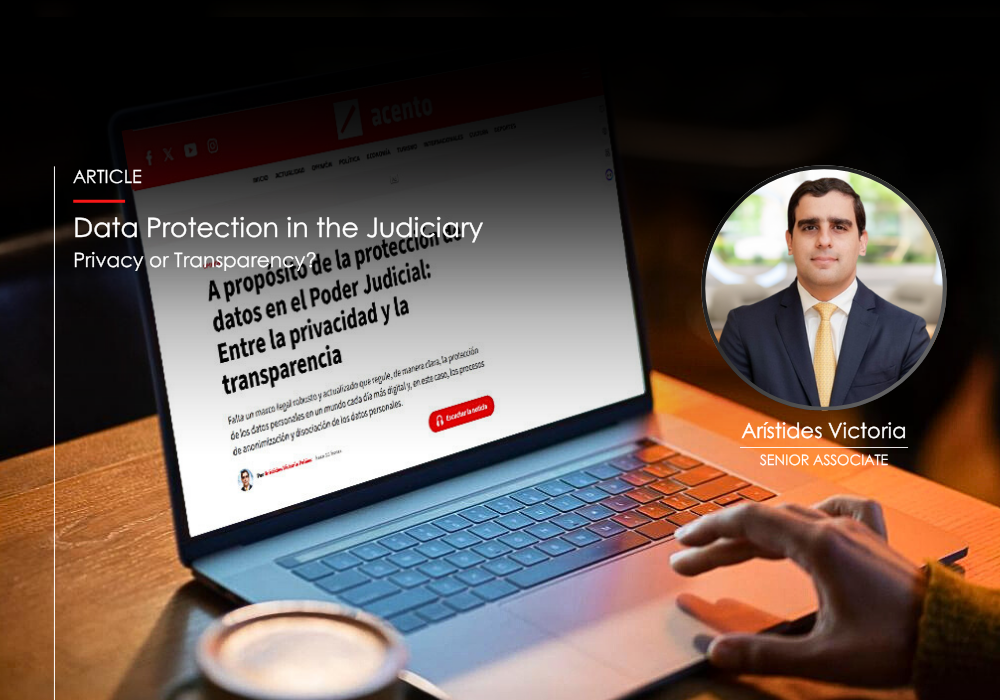Regarding data protection in the judiciary: Between privacy and transparency.
Opinion article published in Acento Digital, by Arístides Victoria, senior associate of Ecija Dominican Republic.
There is no robust and up-to-date legal framework that clearly regulates the protection of personal data in an increasingly digital world, and in this case the processes of anonymization and dissociation of personal data.
The right to privacy continues to gain relevance in the Dominican Republic, and key actors from both the public and private sectors are beginning to recognize the importance of protecting personal data. In the apparent absence of an up-to-date and effective legal framework, various state institutions have begun implementing internal policies and manuals to safeguard citizens’ privacy. A recent example of this trend is the Data Protection Policy adopted by the Judiciary, which was released last week at a high-profile public event.
In general terms, this policy seeks to strike a balance between two fundamental principles: the publicity of judicial decisions and respect for the fundamental rights of those involved, a challenge inherent in any modern judicial system. As is well known, one of the pillars of justice is transparency, which means that judicial decisions are accessible to the public without additional justification. However, this principle must be compatible with respect for the privacy of the persons involved.
The central focus of this policy is on the dissociation and anonymization of personal data contained in court files. In practice, this means that where possible, identifying data such as names, addresses or any other data which may identify a person will be deleted or modified before court decisions are published or given to third parties. This measure is intended to protect privacy, especially in sensitive cases where disclosure of information could compromise the security of those affected.
However, the policy provides for exceptions to this rule. First, it is stated that the data of judges, prosecutors, or lawyers shall not be anonymized, since they are considered public figures and their identification is necessary to ensure the transparency of the judicial process. In addition, disclosure of certain data is contemplated where there is a public interest or where the law requires it. In this sense, a crucial question arises: could this measure lead to a form of censorship or, on the contrary, is it a legitimate mechanism for protecting the privacy of persons involved in judicial proceedings?
The answer to this question is not simple. While the need to protect individuals’ privacy is undeniable, it is also essential to ensure public access to court decisions. The right to information and publicity of judicial acts is essential for full democracy, but this access must not infringe on individual rights. The policy states that parties to a judicial process will continue to have full access to decisions, except in exceptional cases laid down by law or by court order. However, where decisions are made public to third parties, such as in academic research or for reasons of public interest, the anonymization process will be applied to avoid unnecessary disclosure of personal information.
Read the complete article in Acento Digital — Data Protection in the Judiciary. Privacy or Transparency?





